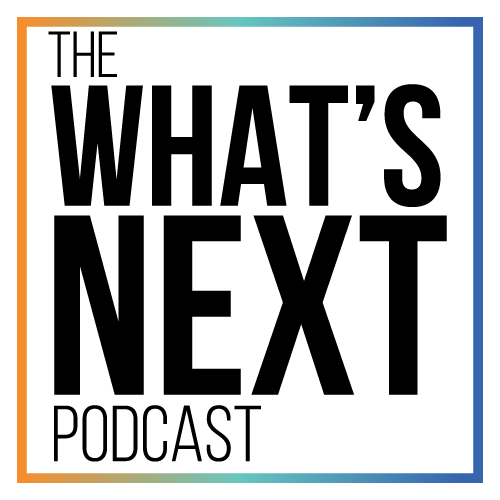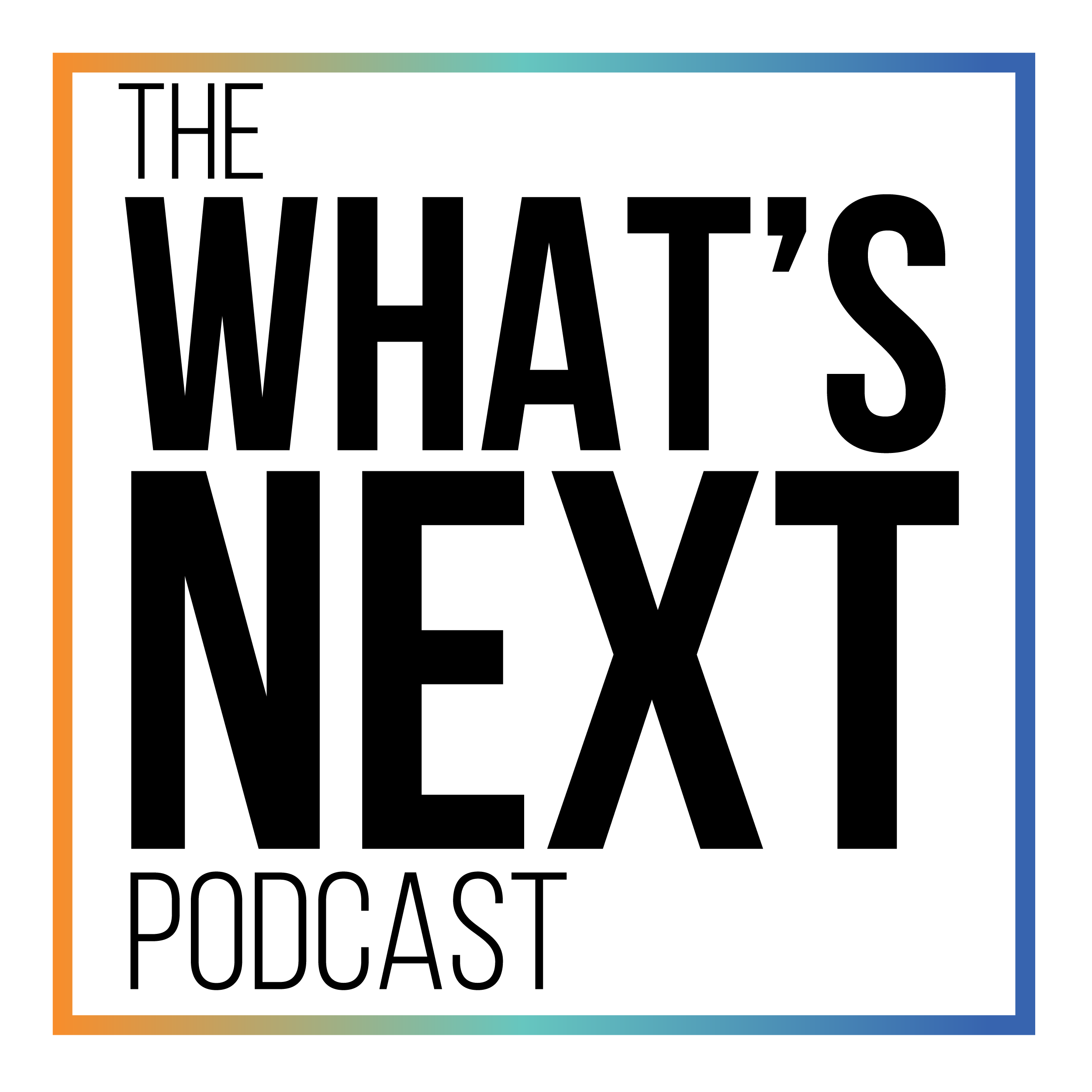Episode 2
What's Next with Duncan Stewart 2022
We speak with returning guest Duncan Stewart from Deloitte Canada on What's Next!
In this episode Duncan gives us insight into the Deloitte predictions on Games and Gaming Consoles, the churn of SVOD, sports NFTs and good old fashioned reading!
Read more on Deloitte's TMT predictions - https://www2.deloitte.com/us/en/insights/industry/technology/technology-media-and-telecom-predictions.html
About Duncan Stewart
Duncan is the Director of TMT Research for Deloitte Canada, a member of Deloitte's US Center for Technology, Media & Telecommunications (TMT Center) and is a globally recognized expert on predicting the future of consumer and enterprise technology, media and entertainment & telecommunications. He has been co-author of Deloitte Global’s annual Predictions report on trends in TMT since 2008. He meets with hundreds of the top tech, media, and telecom companies globally each year, and incorporates their insights into his work.
He presents regularly to companies and at conferences, has a high-profile media presence, and is frequently interviewed on the future of everything.
Duncan has 32 years of experience in the TMT industry. As a portfolio manager, he made investments in the tech and telecom sector, and won the Canadian Technology Fund Manager of the Year award in its inaugural year. In his time as an investor he deployed a cumulative $2 billion of capital into global TMT markets, in public and private companies.
He is a CFA® charterholder and holds a B.A. in Political Science from the University of British Columbia.
Follow Us
INSTAGRAM - www.instagram.com/activeintworld
TWITTER - twitter.com/ActiveIntlUK
KARIM - twitter.com/karimkanji
PODCAST WEBSITE - www.thewhatsnextpodcast.com
The podcast is brought to you by Active International, a global leader in Corporate Trade within the Media & Advertising industry.
Transcript
Hi. I'm Duncan Stewart, director of research for Deloitte Canada in the areas of technology, media and telecommunications. I'm also the co-author of Deloitte's annual TMT Predictions Report, now in its 22nd year.
Karim (:Duncan thank you so much for joining us again. I really appreciate it.
Duncan Stewart (:Great to be here.
Karim (:Duncan, let's get right into it. We know in 2020 and 2021, eSports and gaming was all the rage. People were talking about it. People were staying home and playing more than ever before. For this year, Deloitte's predicting growth in gaming consoles. I think that's a continued growth from 2021. I'm really curious, what's spurring this growth? What consumer habits are helping this to drive this?
Duncan Stewart (:There's a lot of moving parts behind this console prediction. Some of it is there's a console refresh cycle going on. Now you might have expected that to end in 2021 but with the various semiconductor parts shortages, they've actually stretched out that console refresh cycle over several years. We're looking across hardware, software, subscriptions, in game payments, all of those, we're looking for consoles in their 50th years. It was exactly 50 years ago, man. 72, the first ever games console came out. Yeah, I know. 50 years on, it's still growing. Now, is it as big as mobile games? No, no, no, no, no but it's an $81 billion industry of roundabout 900 million people around the world have access to and play console games.
Duncan Stewart (:What are the drivers? Well, consoles continue to give a unique, rich and deep gaming experience to nearly a billion people. Can you do gaming in the cloud? There have been some attempts. It depends on connectivity. It sometimes works.=, It sometimes doesn't. For this year, next year and the year after, it looks like consoles still have their space. Now, the other thing that's going on is a bit of a change in business model. Used to be the console business was all about selling new consoles and they still do that, don't get me wrong. But of that 81 billion, only about a quarter is the actual hardware. When we look at games, titles, subscriptions, in-app payments, all of these new forms of monetization, that's actually three quarters of the business. The console industry, A, isn't dead, B, isn't going anywhere and C, is continuously evolving and finding new forms of monetization.
Karim (:Very, very interesting. I want to get to a second prediction, Duncan, that Deloitte was talking about. We've been talking a lot here at Active about SVOD and so many different ways to subscribe or different channels to subscribe to depending on what you're interested, what you want to watch. And we've always been curious, can this continue? And we understood there was going to be some churn. Personally, I've subscribed to Crave a couple of times, depending on what I want to watch. Same thing with Disney+, I'm on Prime, I'm on Netflix. I think once I subscribed to YouTube Premium even. I don't know if I'm the exception or if I'm the rule. What are you seeing in terms of churn globally and even here in Canada?
Duncan Stewart (:Let's not make this global or Canadian, let's make this the Karim interview. I'll ask you, you have a bunch of services, you have from a guess I think you described a list of four to six different ones that you've subscribed to over time. A couple of them you've subscribe to 12 months of the year, you've never canceled, you've never. Others, you've canceled and never come back to, yet others you've canceled, come back to, canceled again and plan on coming back again. You are the world. Absolutely this is the trend we see. What seems to happen is there is a ceiling on SVOD. Nobody wants 500 different SVOD services. Nobody could afford 500 different SVOD services. Most consumers have one or two mainstays. You know how some people have meatloaf every Wednesday night for the rest, there are people out there who want meatloaf every night for the rest of and that's cool but then there's this list of stuff that you try and you don't see any value on and I'm going to size all of these in a second.
Duncan Stewart (:But what's really interesting is that there's this rotation of services that are good enough to subscribe to every single year but not for all 12 months and we're always moving them on and off our shelves. And that might be sports content, it might be maybe a content, there's one particular series you're a fan of. When it drops, you're all over it. You binge, you watch it. Maybe you watch something else but then you cancel until the next season comes out. We are seeing this around the world. Let me size it for you. I have global data on this.
Duncan Stewart (:Looking at the Scandinavian countries, we did a survey in June, July, August of this year and what we found, especially among young people is that of the people who are churning, these are people who are canceling services, about two thirds are canceling a service that they plan on resubscribing to at some point over the next 12 months. Is churn up? Yes. Is that a bad thing? It's a little bit bad but it's not the disaster it would be for example, in cellular service or cable service. Back in the day, if somebody cancels their cell phone plan and moves to a different carrier, they're gone and they ain't coming back. What we are seeing in SVOD is the opposite of that, it's a revolving door, not a one way exit.
Karim (:Very interesting. Now are content providers, are the Netflixes of the world, are they taking this into account? Do they know yeah, we're going to lose X amount in the spring. They're going to come back in the fall or something like that? What are your thoughts?
Duncan Stewart (:They are just finding out. This whole churn thing used to be fairly low a couple years ago. In the early days of SVOD, most people had one or two services, so they weren't bumping up against that hypothetical ceiling. It's only as the market has become saturated where people find they have three, four, five, six, seven, eight, nine different services to choose from that they start doing this cancel and then reorder thing. This whole churn thing is about six to 12 months old. It's relatively new. I would argue that some services, these are the mainstays, the meatloafs. They don't worry that much about it. Their churn's pretty low. It's one to 2% per month. And you can live with that kind of churn. Other services are seeing monthly churn of seven, eight, 9% per month, which means you're basically churning your entire base over a course of a year. Those providers, those SVOD providers are 100% focused on churn. How do we get it down? And this is critical, if they're going to leave, how do we make sure it's easy for them to come back?
Karim (:One question marketers always ask is, and again, I'll just use Netflix as the example, will there be a version of Netflix where you have commercials?
Duncan Stewart (:Now I at Deloitte am not allowed to comment on individual companies. I will say that one unnamed SVOD company that's really well known around the world that does not currently have commercials and has remarkably low churn rates probably wouldn't think about introducing an AVOD, an ad supported video on demand service. Meanwhile, other services, the ones that have those higher churns are absolutely 100% saying, "Hang on, rather than canceling, what about we move you to a tier where you don't pay anything but you have to watch some ads?" We are absolutely seeing that business model emerge. The other thing we're seeing is essentially freemium versions. There's a free version with ads but it doesn't have all of the content and then at certain points and this is Karim, I see a lot of music in your background, I don't see any sports. Are you a big sports fan?
Karim (:I've got up here, JNFTosh Donaldson, that amazing game.
Duncan Stewart (:Baseball? Cool. Probably more, but one of the famous ones is US college basketball, March Madness. A whole bunch of people who haven't seen any college basketball games for the entire season, all of a sudden for one month of the year, really, really, really, really want to watch basketball. People who don't watch cycling ever, ever, ever will watch the Tour de France. That kind of thing. There are a number of SVOD services where you can watch a lot of stuff during the year and you can watch other basketball, college basketball, you can watch other cycling and it doesn't cost you anything. However, if you want to watch that one event, all of a sudden they ding you and you do have to pay money for that period of time. That is absolutely a model we are seeing out there right now.
Karim (:That is very interesting. Let's move on to NFTs. Now, there might be some giggles when I say that term, but Deloitte is covering them so it's not a digital scam. Deloitte in this report focused on sports related NFTs. My question is why do NFTs make sense? And why is Deloitte bullish on them?
Duncan Stewart (:We're not bullish on any given individual NFT. Deloitte is not standing there saying, "If you buy this NFT, we promise it'll be worth more tomorrow." We are not talking about the valuations. What we are talking about is, and I'm a little older than you are, but did you have baseball or hockey cards inside pack of gum when you were a kid?
Karim (:Absolutely.
Duncan Stewart (:And did you throw them in the garbage? And does it now turn out that those cards are worth millions? The idea that you can create a unique sports related memento that people are interested in acquiring, collecting, retraining, trading and possibly monetizing not only is not a new thing, it's a century old. Doing it with blockchain and non-fungible tokens is a techy twist on an old phenomena. Why are we bullish on NFTs? We're not bullish on the value of any given NFT, we're bullish on the fact that sports fans love this stuff and we are confident in predicting that more of them will do this in the future and the volumes will double. We are saying that at least $2 billion in sports NFTs will occur in 2022. I am highly confident in that one.
Duncan Stewart (:Now, that doesn't mean it can't be lost or stolen. It doesn't mean the value of your NFT goes up or down. It does mean this is a fundamental human desire. I am a modestly fit guy, I run and I cycle and so forth. But I don't know if you've ever actually stood beside a real pro athlete , they're amazing. They're so fit and strong and coordinated and vicariously owning a NFT of Josh Donaldson or Fred VanVleet, pick your favorite sports star, that's a thing that many of us want to be athletes kind of, it's our way of grabbing a piece of the glory. That's a fundamental human need. There have always been sports fans. There've always been sports collectibles, NFTs are just the modern version of that.
Karim (:That's really interesting. What I found fascinating in this whole report was a whole section on reading. When I think of Deloitte TMT Predictions, I think of, I know technology is just a part of that but I really think of technology stuff. Innovation in that area and books to me seems like, wow, that's kind of refreshing to hear about Deloitte focusing on reading. Tell me about this whole, you guys focus on a gender divide. Boys are reading less than girls. I want to know why is that? And is there a societal impact that is forthcoming as a result, do you think?
Duncan Stewart (:This gender gap, it's not new, Karim. This has been going on for decades. When I was a kid, boys were told to go outside and play sports and being bookish was seen as a bad thing. We as a culture have had this stereotype for decades. It's not getting worse but on the other hand, it's not getting better. Is there a problem with the fact that boys and men read fewer books, one than girls and women and two, by and about girls and women? This is notorious. Boys and men refuse to read books by female authors. They refuse to read books with female protagonists. Are there costs to this at a societal level?
Duncan Stewart (:Cost number one, and this is not going to shock you. If boys read fewer books than girls and they do, studies in Canada, studies across the world show that boys actually read less well. Their ability to read is less good. Well, practice makes perfect, the more time you spend reading, the better you get at it. We need to think about that societal cost but that's not the real one. Folks, it's 2022 out there. The biggest skill that any employer is looking for these days, the real value add in a diverse and inclusive world is can you put yourself in somebody else's shoes? Can you think outside of your box? Whatever that box is, can you actually demonstrate empathy and EQ and understanding of if you are a manager and you are managing the team of different colored people, different gendered people, different LGBTQ non-binary people, people from different cultures and languages, do you have an ability to actually see the world from their perspective?
Duncan Stewart (:And if only Karim, if only there was a magic tool that let me inside somebody else's head. Oh wait, it's called a book. The fact that boys and men do not do well at this is a thing that is a serious liability for our sons going forward. As fathers, we have a duty to one, read to them but also to read in front of them. If a son observes his dad reading a book by a woman about a woman, that kind of role modeling will encourage that son to do the same thing. And that is a phrase I use for the minds, for the perspectives of girls and women to be a closed book to boys and men is not a good thing in 2022 and beyond.
Karim (:Wow. Duncan, thank you so much for sharing all of these predictions that we've talked about today but also over the past number of years. If more people want to dive deep into these predictions and insights, where's the best place for them to go?
Duncan Stewart (:Deloitte website, type in TMT Predictions. It's all there. There's actually 19 predictions this year and we've just covered four. What's the old phrase? We're just scraping the surface here. There's stuff out there on the chip shortage, which we kind of touched on but lots and lots of other stuff too. Thank you so much for having me on. Always great to talk. Look forward to doing it again next year.
Karim (:It's always a pleasure Duncan. Thank you so much.
(:Power your advertising. Working with Active International enables you to fund your or advertising using your company's own products, assets or even services. We have over 30 years experience connecting and bringing value to businesses all over the globe, helping many brands scale up into household names. Want to achieve more from your marketing spend? Contact Active International today.


